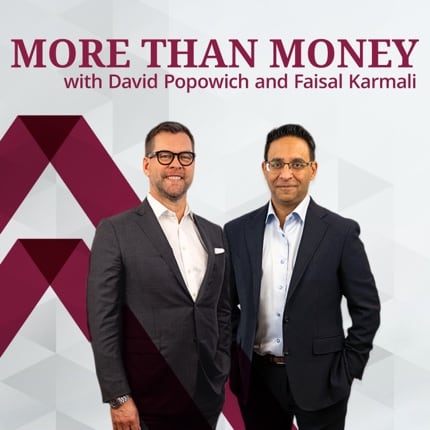What are you going to do with your ‘never money’? That money that you will never use in your lifetime, even if you checked every single item off your bucket list in retirement.
Most of the clients we walk through the estate planning process choose to leave their wealth to the next generation, many with a portion designated to a charitable cause that is close to their hearts.
But what if you don’t want to leave your money to your kids? What if you would prefer to skip a generation and give an inheritance directly to your grandchildren?
In our experience this situation doesn’t happen often, but when it does, it can cause some serious damage to family dynamics. That’s why it’s so important to build a proper estate plan that considers the potential tax and legal implications of your decisions.
Why skip a generation when transferring wealth?
Everyone will have a different reason for wanting to skip over a generation in their will.
Some may have children who are already financially secure and don’t actually need the money. Others may worry that their children are not responsible enough to handle a large amount of money.
Some may have strained relationships with their children, while others may worry what their children-in-law will do with their family’s wealth.
In some cases, grandparents have had to take on a parental role because the child’s parents have been absent or lacked the skills or the willingness to raise them well.
It might also make sense to provide direct financial support to a grandchild who has special needs or disabilities.
Whatever the reasoning, it’s important to ensure your estate documents reflect your wishes and that your wealth is structured based on what you’re trying to achieve.
Structuring your gift: Trusts
One option for making sure your money is transferred directly to your grandchildren is an alter ego trust. With this type of trust, the assets aren’t technically considered a part of your estate and thus do not flow through your will, making it more difficult for anyone to challenge your wishes.
Before setting up an alter ego trust, it’s important to consider the cost and effort of setting up and maintaining it, including the requirement to file an additional tax return each year.
Another option is a testamentary trust, which is typically set up within a will. This type of trust allows you to control when and how your grandkids receive the money, which can prevent them from having access to a large sum of money before they’re ready to handle it.
Before deciding which option is right for you, be sure to get advice on your specific situation from tax, legal, and financial professionals.
Explain your intentions to your family
While it may be uncomfortable, especially if your relationship is strained, it’s a good idea to let your kids know in advance if they’re being passed over in your will and why.
Adult children who have done well for themselves will often be fine with this decision, and they may even be happy to learn that their kids will receive your inheritance. The adult children who do not take the news as well will at least have the space to air their concerns and hear your explanation, which will hopefully help your family minimize conflict or even avoid legal action after you’re gone.
If having a conversation isn’t possible for your family, you can also explain your choices through letters to your beneficiaries or as an informal preamble to your legal trust documents.
Ultimately, you can do whatever you wish with your money. However, in all of our years working with clients, we have never heard anyone say they want to leave a legacy of fighting and discord for their family. Thoughtfully considering your options, getting the advice you need to put your wishes into action, and having tough conversations about your choices can go a long way in achieving your goals for your wealth while also preserving your family’s relationship.
Want to learn more about the complexities of estate planning? Register for our upcoming seminar by clicking here.
David Popowich and Faisal Karmali are Investment Advisors with CIBC Wood Gundy in Calgary. The views of David Popowich and Faisal Karmali do not necessarily reflect those of CIBC World Markets Inc.
This information, including any opinion, is based on various sources believed to be reliable, but its accuracy cannot be guaranteed and is subject to change.
CIBC Private Wealth consists of services provided by CIBC and certain of its subsidiaries, including CIBC Wood Gundy, a division of CIBC World Markets Inc. Insurance services are available through CIBC Wood Gundy Financial Services Inc. In Quebec, insurance services are available through CIBC Wood Gundy Financial Services (Quebec) Inc. The CIBC logo and “CIBC Private Wealth” are trademarks of CIBC, used under license. “Wood Gundy” is a registered trademark of CIBC World Markets Inc.
Clients are advised to seek advice regarding their particular circumstances from their personal tax and legal advisors.











